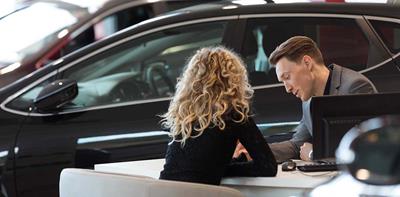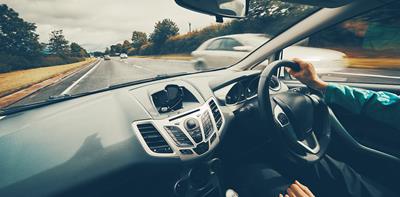
Ferrari, Aston Martin or Porsche? Who wouldn’t love to walk out of a showroom with the car of their dreams.
But buying a car is likely to be the biggest financial purchase you’ll make, after your home. And few people are so lucky to have thousands of pounds at their disposal.
Instead, they may need alternative methods of paying for a car – and they don’t all necessarily involve actually owning the vehicle.
Many people now opt to spread the costs using one of the variety of finance options available. In fact, according to the Finance & Leasing Association (FLA), 88% of new cars bought by consumers in the UK in 2017, that’s 2.3 million, were on finance.
Do your homework
The range of payment options can be bamboozling. So before you step on a forecourt and speak to a salesperson, nail down your budget and take the time to understand the differences between the options available, which would best suit you, and which are best avoiding.
It’s not even as simple as buying a car versus leasing one – here are the most common payment options available to car shoppers:
Cash
If you do have the money available, paying cash is normally the cheapest way to buy your car. But make sure you have enough savings to cover other major purchases or unexpected car costs in the future.
Unlike some of the payment options outlined below, paying in cash means you own your set of wheels straight away. Therefore, you could sell it if you need the money in future.
If you have your heart set on a particular model, but not quite enough cash, you can consider a halfway house between outright payment and finance, by putting down the biggest deposit you can afford. This will lower your loan interest.
Credit card
Putting a car on your credit card may sound extravagant, but if you need to borrow money, done right it can be the cheapest way to do so.
If you use a card offering 0% on new purchases for as long as possible, you can avoid paying any interest. You’ll need to set up a direct debit to pay off what you owe before the deal ends.
You also benefit from the protection afforded by buying goods and services on credit cards, which means if your car is faulty you can claim your money back form the card provider.
How much you can borrow will depend on your credit score. And ensure that you can pay off your debt before the 0% deal ends. The card may then revert to a very high rate.
You also need to ask your chosen car dealer accepts credit card payments, as not all do.
Personal loan
If you don’t have enough cash or savings to buy a car, a personal loan from a bank or building society can also be a relatively cheap way to borrow money over the long term. The car will be yours straight away. And you can choose how long the loan lasts.
First work out what you can afford and shop around, using more than one different comparison site to ensure you get the best deal.
If you need a longer-term loan, then you’ll pay more in interest. This loan calculator from the Money Advice Service is a useful starting point to find out how much a loan will cost you.
Personal contract hire or PCH
Also known as car leasing, under a PCH scheme you won’t ever actually own your car – you are essentially renting it from the finance company.
After an initial deposit, you pay a fixed monthly sum. This normally covers costs such as servicing and car tax, so you only need to pay for fuel. This makes budgeting easier.
At the end of the deal, which normally lasts 2-3 years, you return the car or take out another lease. That saves you the hassle of selling your car.
Again, you’ll need a fine eye for detail – look out for pre-agreed mileage limits, which incur charges if you go over them. You’ll also need to keep the car in good condition to avoid financial penalties.
Personal contract purchase or PCP
Like PCH, this type of scheme involves paying a deposit, which is often subsidised by the car dealer as an incentive to sign up, followed by monthly fees.
The big difference with PCH is that you can keep the car at the end of the deal. To do so, you’ll need to pay a fee, or ‘balloon payment’ covering the resale value, so check the small print on what you will have to pay carefully. Alternatively, you can give the car back, without making any further payments. Or you can sell the car yourself to pay off what you owe.
Four out of five people with PCP plans don’t opt to buy the car at the end of their contract, according to the Finance and Leasing Association. In this case, a PCH scheme could work out cheaper.
Like with PCH, you will be subject to mileage limits and can be penalised for excessive wear and tear on the car.
Hire purchase or HP
These deals allow you to hire your car with the option to buy it by the end of the contract, which typically last between 1-5 years.
You usually pay a relatively low deposit and there is no lump sum to pay at the end.
These deals are available to people with lower credit ratings than other finance schemes. This is because the loan is secured against the car.
However, you don’t own the car until you’ve made the final payment. And if you don’t make the payments on time, the car could be repossessed.
No £25 admin fee
When you update your policy online, e.g. amend driver, address or car details.
Read the small print
However you decide to pay for your next car, remember to shop around, stick to a budget, and read the small print.
Not everyone does their homework. No fewer than 50% of respondents to a recent survey by CarGurus who have bought a car on finance said they weren’t sure how much they owe. Nearly two thirds (63%) were unaware of their mileage limit or what the penalties are for exceeding it.
You should also be aware of additional charges. In particular, look out for additional extras that dealers might want to sell you as part of a finance plan, such as extra insurance.


